04 Sep2020
By Andrew Daire

Photo by Clay Banks on Unsplash
This article orginially appeared in University Business and is reprinted with persmission.
We are living in a monumental moment in time. The unjust deaths of George Floyd, Ahmaud Arbery, Breonna Taylor and many others call for greater social justice and equity in our society. While many institutions of higher education and educator preparation programs are talking about equity in education and the need for actionable change, having a deep passion and a meaningful, verbal commitment to social justice is not enough. We cannot move the needle forward in creating a more equitable education system until we address the root areas where change needs to happen—implicit, institutional, and systemic biases.
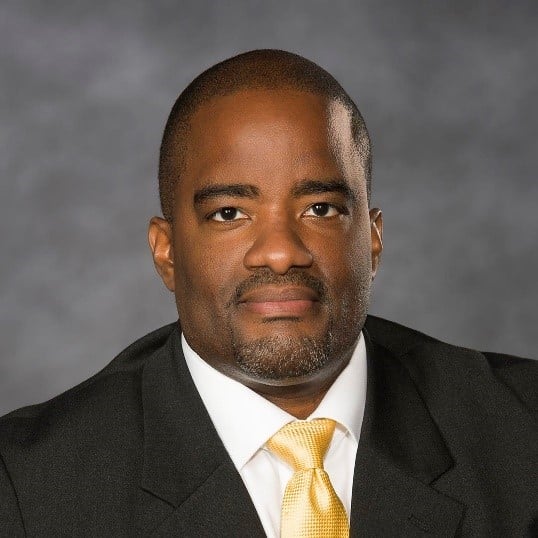 The data is clear. We live in a more segregated society now than the past 30 to 40 years. When students are segregated in elementary, middle and high school, they may not have any meaningful interactions over a long period of time with people who are different from them. When students graduate from high school and enter into a teacher preparation program, they could potentially complete their entire program without ever having a faculty of color.
The data is clear. We live in a more segregated society now than the past 30 to 40 years. When students are segregated in elementary, middle and high school, they may not have any meaningful interactions over a long period of time with people who are different from them. When students graduate from high school and enter into a teacher preparation program, they could potentially complete their entire program without ever having a faculty of color.
Candidates have not adequately learned about racism in America, and they do not possess the context to understand the frustration and anger that underrepresented minorities feel. Students may be offered a gratuitous multiculturalism course in which they superficially learn about diversity, but do not learn about critical race theory, cultural responsiveness and proficiency as a standard part of the curriculum. They may never receive the opportunity to confront their own implicit biases, and then are placed in a classroom full of children with cultural backgrounds that they simply do not understand. From the lens of the children in the classroom, they do not see a teacher who looks like them or that they can relate to, and therefore, they are not drawn to pursuing a career in education.
01 Sep2020
By Weade James
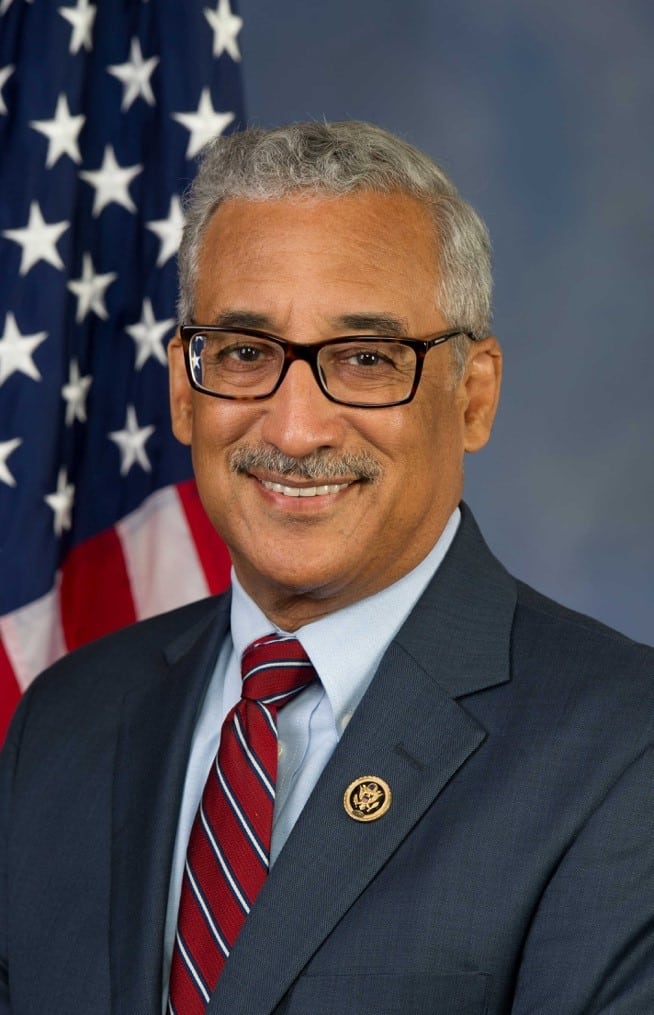 AACTE’s Washington Week virtual conference is quickly approaching. This year’s event will feature the Holmes Advanced Policy Short Course, Holmes Policy Institute, AACTE’s Day on the Hill, and the State Leader’s Institute.
AACTE’s Washington Week virtual conference is quickly approaching. This year’s event will feature the Holmes Advanced Policy Short Course, Holmes Policy Institute, AACTE’s Day on the Hill, and the State Leader’s Institute.
Joining the Holmes Policy Institute this year is Congressman Robert C. “Bobby” Scott, chairman of the Committee on Education and Labor. Congressman Scott will deliver the closing keynote address at this year’s Holmes Policy Institute on Thursday, September 10.
Throughout his 14 terms representing Virginia’s third congressional district, Congressman Scott has been a champion on issues of diversity, equity and inclusion. He has advanced policies to address the equity gaps in education, employment, and healthcare. In 1993, Chairman Scott became the first African American elected to Congress from the Commonwealth of Virginia since Reconstruction and only the second African American elected to Congress in the history of Virginia. Congressman Scott continues to break barriers and create opportunities for future generations of African American and minority leaders.
Following his keynote remarks, the Congressman will engage in an interactive discussion with the Holmes Scholars about the state of public education, educator preparation, and the importance of diversifying the educator workforce.
To learn more about the AACTE Holmes Program, contact me at wjames@aacte.org.
28 Aug2020
By Weade James
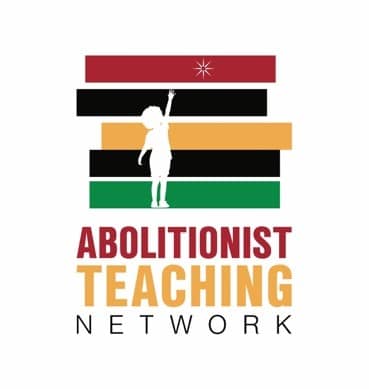
The Abolitionist Teaching Network recently released a Guide for Racial Justice and Abolitionist Social and Emotional Learning (SEL). Founded by educators and activists, the Network’s mission is to develop and support educators to fight injustice in their schools and communities.
The Guide for Racial Justice and Abolitionist SEL seeks to engage teachers and administrators in critical reflection and action to address the injustices that impact Black, Brown, and Indigenous students and families. It also challenges educators to abandon the Eurocentric approach of SEL that promotes the use of school resource officers and exclusionary discipline practices. Instead, educators are encouraged to adopt abolitionist practices of SEL that are culturally responsive, reciprocal in nature, transformative and centered on healing.
The guide also accentuates the important role of educator preparation programs to prepare more Black, Brown, and Indigenous teachers, school counselors and administrators. Research consistently suggest that all students benefit from having diverse educators, including increased academic and social emotional outcomes. Diverse educators also have unique attributes that can break down racial stereotypes, and an innate ability to affirm Black, Brown, and Indigenous students’ sense of belonging.
Read more about the guide and resources to promote anti-racist teaching and learning.
19 Aug2020
By MarÍa del Carmen Salazar
Meet Maria, a Mexican American student who entered school with a suitcase full of treasures—including her culture, family traditions, and experiences. She called her suitcase a maleta. Her teachers made it clear that her maleta was not welcome. While she was never explicitly told to leave her treasures at the classroom door, through their curricula, instruction, and assessment practices, her teachers made it known that her culture did not and have value and would hinder her learning. They gave her a new maleta, one filled with the U.S. culture; they believed this maleta would serve her better. As a result, she felt deep shame over the most essential elements of her humanity.
I am Maria—and to this day, I feel the pain of my teachers stealing my humanity.
Teacher evaluation at the center of inequity
Today, our nation is focused on inequities in our education and justice systems. While many school districts and universities have released diversity and social justice statements, the harsh reality remains that some areas within our education system are obstructions to racial equity in our schools—including teacher evaluation tools. This negligence has a profound, lifelong impact on culturally and linguistically diverse (CLD) learners. It is time for education leaders to challenge white supremacy and racial bias in teacher evaluation.
17 Aug2020
By Brian McNeill
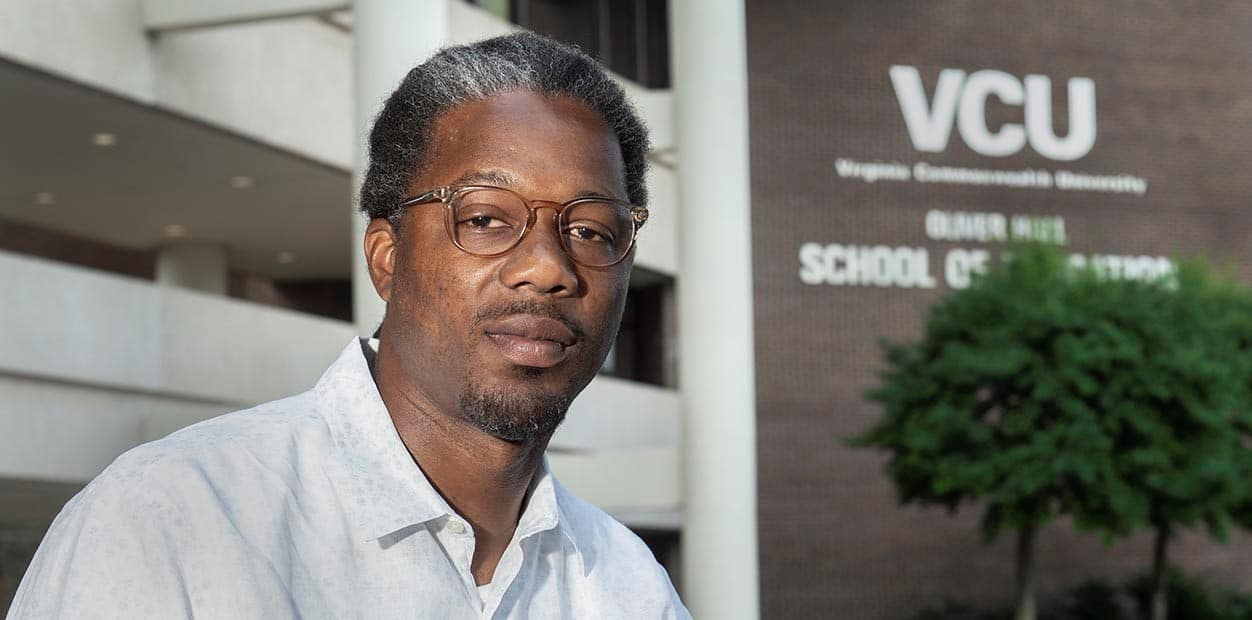
This article originally appeared on the Virginia Commonwealth School of Education website and is reprinted with permission.
As public school systems across the country are readying plans to reopen — in some fashion — this fall, a new study at Virginia Commonwealth University (VCU) is investigating the preparedness of two school districts within the greater Richmond area amid the COVID-19 pandemic.
The study, “Exploring PreK-12 Public School Systems’ Pandemic Preparedness During COVID-19 School Closures,” is led by Holmes Scholar alumnus Dwayne Ray Cormier, Ph.D., an assistant professor in the Department of Foundations of Education in the School of Education and a visiting iCubed scholar.
“I wanted to see: what do the protocols and processes look like?” Cormier said. “And I then want to see if there’s anything we can learn that can be shared throughout the state or throughout the country that would help schools prepare.”
17 Aug2020
By Barbara McKenna

Learning Policy Institute’s (LPI) new study, Measuring Student Socioeconomic Status: Toward a Comprehensive Approach, discusses the limitations of the popular measure and examines alternatives for state policymakers who are seeking to accurately count students from low-income families.
“Changing how we measure and address student poverty is more important than ever,” said LPI Senior Researcher Peter Cookson, who authored the study. “A shift away from the [federal Free and Reduced-Price Lunch] FRPL [program] measure was already long overdue and taking place in some states. This takes on deeper urgency now as learning for a generation of students has been upheaved by the COVID-19 pandemic. Accurately measuring family incomes is necessary if policymakers are to allocate school resources that meet the educational needs of students.”
11 Aug2020
By Jacqueline Rodriguez

This year’s Capital Hill visits during Washington Week will feature AACTE’s DEI Handbook, which will include your strategies to elevate diversity, equity, and inclusion within your institutions.
What might those strategies look like? We are glad you asked! While DEI may be a broad concept, we are most interested in learning about how you are supporting the recruitment and retention of students and faculty of color on your campus. We also want to know how you are supporting your faculty and staff to become culturally competent in their teaching, research, and in their community engagement.
Why should you submit your strategies? You are shaping the field! Your practices matter to your colleagues, to your peer institutions, and importantly to your Congressional leaders:
- AACTE members want to learn from you.
- Your peers want to develop their own strategies and build off of your models.
- Your Congressional leaders need the evidence of your strategies to advocate for increased funding.
07 Aug2020
By Jackson Holtz
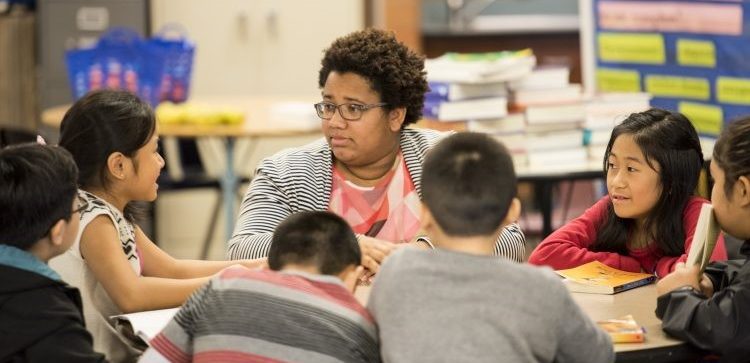
The University of Washington today announced a $6 million anonymous gift earmarked to bolster diversity in the education workforce, a key driver in ultimate K-12 student success, especially for students of color.
The gift will expand financial support for and recruitment of teacher candidates from diverse backgrounds, including candidates of color and those who are multilingual. In addition, the gift provides professional learning and supports to enhance retention in the teaching workforce, and evaluation and dissemination of the key learnings to aid efforts across the nation to boost the racial, ethnic and linguistic diversity of teachers entering the profession.
“This extraordinary and generous donation will help to develop a more diverse and representative educational workforce,” said UW President Ana Mari Cauce. “We are deeply grateful for this forward-looking gift that will do so much to benefit students, especially multilingual students and students of color, as well as the students they go on to teach and mentor as educators.”
03 Aug2020
By AACTE

On behalf of the Board of Directors of the American Association of Colleges for Teacher Education (AACTE), President and CEO Lynn M. Gangone issued the following statement today regarding the Immigration and Customs Enforcement agency’s guidance that forces colleges and universities to reopen with in-person classes:
“AACTE is appalled by efforts to deny international students from attending U.S. colleges and universities on the basis of enrollment in online versus in-person classes. The U.S. Immigration and Customs Enforcement agency’s position prohibits new or initial students on foreign visas after March 9 from entering the country and enrolling in fully online courses, thus forcing them to take other measures, such as transferring to a school with in-person instruction this fall. This policy is both harmful to the health, safety, and overall well-being of the students and detrimental to their educational trajectories. Additionally, this action exacerbates the complex challenges institutions of higher education already face during this unprecedented time.
03 Aug2020
By Jacqueline Rodriguez

AACTE wants to celebrate your successful strategies to diversify the profession and professionally develop your faculty and staff. We plan to share members’ strategies in a handbook focused on diversity, equity, and inclusion. This handbook will be distributed to congressional leaders and their staff during Washington Week 2020. The handbook will also be located on the AACTE website for our members to share their successes with one another.
Now that you’ve read about the Handbook, you’re likely planning your submission. We want to support you every step of the way. Below are a few tips for a successful submission to the DEI Handbook.
03 Aug2020
By Nathan Jones

This article by Nathan Jones, associate professor of special education at Boston University, is Part 1 of a two-part series.
Questions of health and safety of students and school personnel have dominated summer debates about how to open schools this fall. The collective focus on safety is certainly appropriate, considering concerns voiced by parents and educators. In most all cases, states have asked school districts to prepare for multiple possible scenarios, ranging from fully in-person to fully virtual. To plan well for any of these scenarios would take a tremendous amount of collective will and resources. To plan for all options simultaneously means that schools have simply not had the opportunity to wrestle with the deep teaching and learning challenges in front of them. If we were to wave a magic wand, and all schools were able to operate fully in person with no threat to students or staff this fall, schools would still face an uphill battle to address the learning losses that have been disproportionately felt by critical student sub-populations. Nowhere is this issue clearer than in the education of students with disabilities.
Although formal data are not yet available, we should anticipate that many students with disabilities have regressed considerably since the transition to distance learning. Data from NAEP assessments show that, for the past several years, students with disabilities have lagged behind their peers in reading, writing, and math. These gaps have likely widened further during distance learning, where students with disabilities have likely not received the additional instructional time they need to make progress. In a May 2020 survey conducted by Parents Together, 40% of parents of students with disabilities reported receiving no services at all since the transition to remote learning, and only 20% reported receiving the services they were entitled to.
31 Jul2020
By Jacqueline E. King, Ph.D.
 More than ever, AACTE members are focused on disrupting inequities and advancing racial justice. AACTE is offering two great new opportunities for members to engage in this work with colleagues from across the country. The AACTE Board of Directors recently created two new committee:
More than ever, AACTE members are focused on disrupting inequities and advancing racial justice. AACTE is offering two great new opportunities for members to engage in this work with colleagues from across the country. The AACTE Board of Directors recently created two new committee:
- Advisory Committee on Educator Diversity
- Holmes Program Advisory Committee
These committees will advise AACTE on how it can best help members attract and retain diverse future teachers and other educators and on AACTE’s signature program for future scholars and leaders of color, the Holmes Program.
If you are interested in serving on one of these important new committee—or if you would like to nominate a colleague—please act now! Nominations close on August 7. Learn more and submit your nomination.
28 Jul2020
By Jacqueline Rodriguez

AACTE’s annual Washington Week is going virtual and we are excited to expand the advocacy campaign from a week to a month! This September will be filled with advocacy events that are sure to engage Members of Congress and their staff. Given the national climate, AACTE would like to elevate your invaluable work in the areas of diversity, equity, and inclusion in the midst of the many challenges we are all facing in 2020.
At this year’s Day on the Hill event, we will provide our Members of Congress with a “handbook” comprised of collected strategies by our members, describing their successes at their educator preparation programs (EPPs) in pursuit of diversity, equity and inclusion.
28 Jul2020
By Jacqueline Rodriguez

As a nation, we are facing racially and ethnically grounded injustices, which disproportionately impact our BIPOC students and educators. In a recent letter to Holmes students, AACTE President and CEO Lynn M. Gangone noted “that generations of citizens are molded by their educators, and so the work of fighting for racial equity begins in our member institutions—on your campuses.”
Sadly, the nation’s P-20 educators have never reflected the rich diversity of the students they serve. Gangone notes that while “the work that needs to be done to sow seeds of racial justice in our curriculum and in our teaching practices should not and cannot be solely completed by our students and faculty of color, the invaluable teaching and scholarship contributions of our diverse educators and candidates are the underpinning for system of education each student in our country deserves.
24 Jul2020
By Dustin Wunderlich
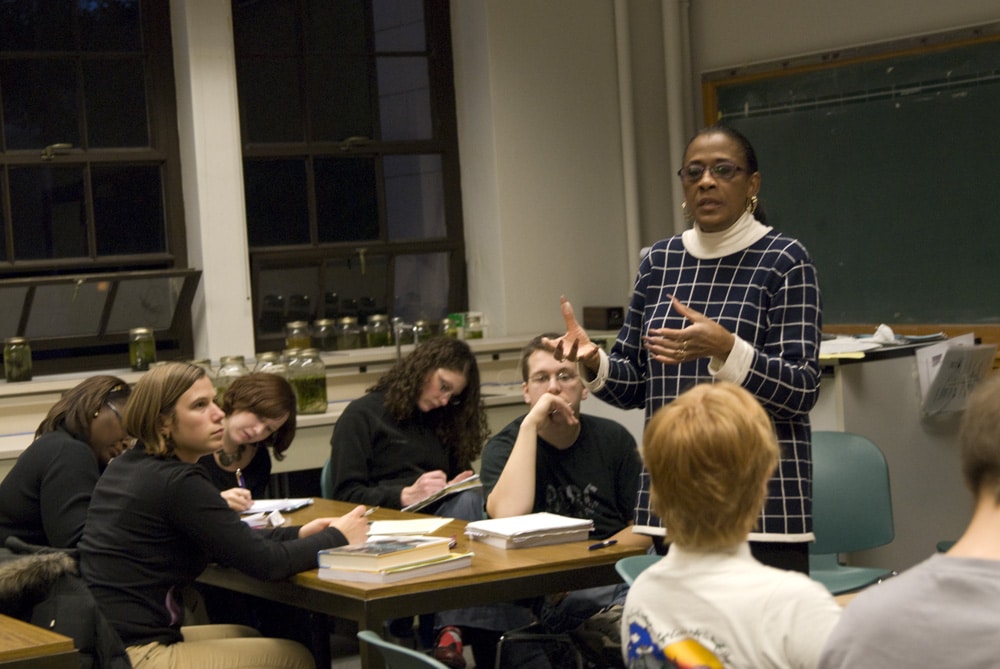
This article originally appeared on the University of Washington website and is reprinted with permission.
When Professor Geneva Gay began her career as a high school social studies teacher more than four decades ago, the concept of multicultural education was still in its infancy. No university had even started offering a doctoral program in the field.
This July, Gay will retire following a 29-year career at the University of Washington College of Education in which her internationally-recognized scholarship has advanced the field in profound ways — while making clear the essential role of multicultural education in an increasingly diverse and interconnected world.

 The data is clear. We live in a more segregated society now than the past 30 to 40 years. When students are segregated in elementary, middle and high school, they may not have any meaningful interactions over a long period of time with people who are different from them. When students graduate from high school and enter into a teacher preparation program, they could potentially complete their entire program without ever having a faculty of color.
The data is clear. We live in a more segregated society now than the past 30 to 40 years. When students are segregated in elementary, middle and high school, they may not have any meaningful interactions over a long period of time with people who are different from them. When students graduate from high school and enter into a teacher preparation program, they could potentially complete their entire program without ever having a faculty of color.






 AACTE’s Washington Week virtual conference is quickly approaching. This year’s event will feature the Holmes Advanced Policy Short Course, Holmes Policy Institute, AACTE’s Day on the Hill, and the State Leader’s Institute.
AACTE’s Washington Week virtual conference is quickly approaching. This year’s event will feature the Holmes Advanced Policy Short Course, Holmes Policy Institute, AACTE’s Day on the Hill, and the State Leader’s Institute.







 More than ever, AACTE members are focused on disrupting inequities and advancing racial justice. AACTE is offering two great new opportunities for members to engage in this work with colleagues from across the country. The AACTE Board of Directors recently created two new committee:
More than ever, AACTE members are focused on disrupting inequities and advancing racial justice. AACTE is offering two great new opportunities for members to engage in this work with colleagues from across the country. The AACTE Board of Directors recently created two new committee:

